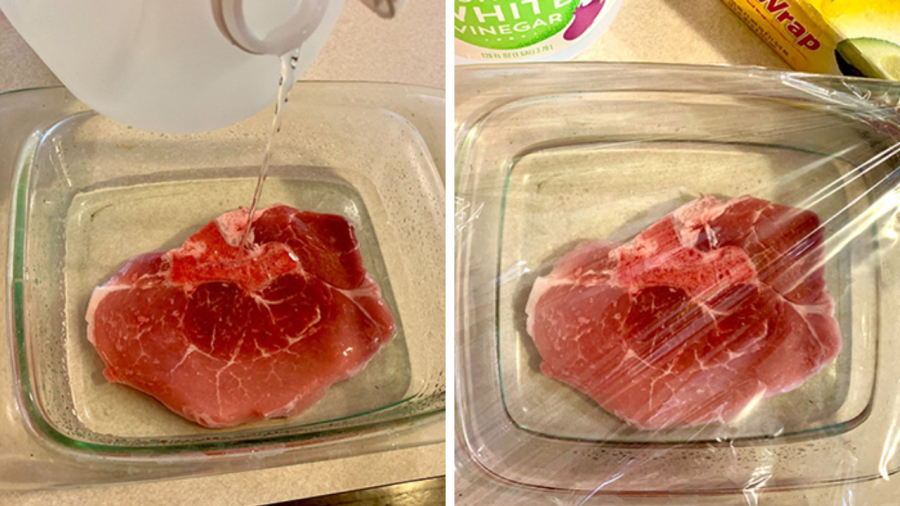The Benefits of Using Vinegar on Meat
Vinegar helps meat thaw faster and tenderizes the muscle without affecting the flavor of the meat.
Typically, the safest way to thaw meat that most people do is to transfer the meat from the freezer to the refrigerator and wait for the meat to slowly thaw. To thaw meat faster, some people will soak the meat in water or use the microwave to thaw it. There is a method to thaw meat quickly that not everyone knows, and that is to use vinegar. Vinegar helps expedite the thawing process of the meat without compromising the flavor. You can use vinegar to thaw chicken, beef, or pork.

All you need to do is prepare a bowl of cold water, add some vinegar to the water, and soak the meat in this water for a few minutes. The meat will quickly thaw and become tender. Then, rinse the meat with clean water before cooking.
Washing the meat with vinegar also helps effectively eliminate any unpleasant odor. Aside from the natural odor of the meat, the freezing process can also cause the meat to have a freezer smell. Some people may not like the smell of frozen meat. Washing the meat with water mixed with vinegar will help eliminate this unpleasant odor.
In addition, vinegar is acidic, so it can also help tenderize the meat. If you do not have vinegar, you can use high-acid juices like orange, lemon, or even tomato sauce to marinate the meat. This method will enhance the flavor and tenderness of the meat.
Other Uses of Vinegar
– Enhances the aroma of rice
When cooking rice, you can add 2-3ml of vinegar to the pot and cook as usual. Vinegar helps make the rice fluffier and more fragrant. This tip also helps prevent the rice from becoming sour. You can use lemon juice as a substitute for white vinegar.
– Used for washing fruits and vegetables
People often wash fruits and vegetables with rice water, salt water, or baking soda water. In addition to these options, you can also dilute vinegar with water to clean fruits and vegetables. Soak the fruits and vegetables in diluted vinegar for about 10 minutes, then rinse with clean water to make them cleaner and fresher.



































